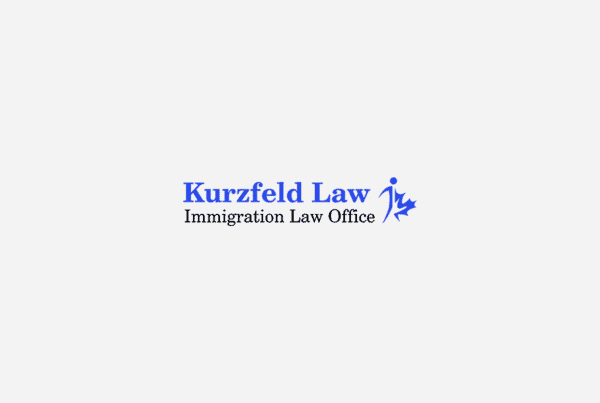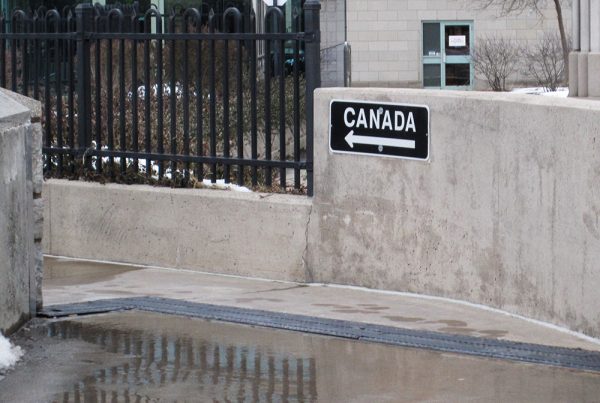“Parents sponsorship Canada” is a significant issue immigrants often have. Being separated from your parents or other family members is incredibly stressful when you have to live without them in Canada. IRCC has redesigned the family reunification process to address this issue. Consequently, it is now possible for Canadian citizens and permanent residents to apply to sponsor their parents’ and grandparents’ immigration to Canada.
In 2022, Immigration, Refugees and Citizenship Canada (IRCC) plan to accept 25,000 applicants for the Parent and Grandparent Program (PGP) under the parents and grandparents sponsorship Canada 2022 program. In addition, recent IRCC reports claim that in the future years, there will be an increase in PGP immigration. For example, in 2023, 28,500 candidates are anticipated to immigrate, and in 2024, that number will increase to 32,000 immigrants.
Requirements For Sponsoring Your Parents and Grandparents into Canada:
Canada is a country that values family reunification and encourages Canadian citizens and permanent residents to sponsor their parents for immigration. Sponsoring parents to immigrate to Canada can be a complex process, but it can be a rewarding experience for both the sponsor and their parents. In this article, we will discuss the steps involved in sponsoring your parents to immigrate to Canada, as well as some important considerations to keep in mind.
Step 1: Determine eligibility
Before sponsoring your parents, it is important to determine whether you and your parents are eligible to participate in the sponsorship program. Some of the key eligibility criteria include:
- You must be a Canadian citizen or permanent resident and at least 18 years of age.
- Your parents must not have any criminal or immigration-related issues that would make them inadmissible to Canada.
- Your parents must undergo medical examinations and obtain police certificates as part of their application process.
It is important to note that eligibility criteria can vary depending on the specific immigration program you are applying under. For example, if you are sponsoring your parents under the Parents and Grandparents Program (PGP), there may be additional eligibility criteria to meet.
Step 2: Gather required documents
Once you have determined that you and your parents are eligible to participate in the sponsorship program, you will need to gather the required documents for the application. Some of the key documents you will need include:
- Proof of your Canadian citizenship or permanent residency status
- Proof of your relationship with your parents, such as birth certificates, marriage certificates, or adoption papers
- Proof of your parents’ identity, such as passports or national identity cards
- Proof of your parents’ relationship with each other, such as marriage certificates or divorce certificates
- Proof of your parents’ admissibility to Canada, such as police certificates and medical exams
- Proof of your ability to financially support your parents, such as bank statements or employment letters.
It is important to ensure that all documents are translated into English or French, as required, and that certified translations are provided.
Step 3: Submit the application
Once you have gathered all the required documents, you can submit the application to Immigration, Refugees and Citizenship Canada (IRCC). The application process and processing times can vary depending on the specific program you are applying under, as well as the volume of applications received by IRCC.
Step 4: Wait for a decision
After submitting the application, you will need to wait for a decision from IRCC. Processing times can vary depending on the specific program and the volume of applications received. If your parents are approved for immigration, they will receive permanent resident status in Canada.
Important considerations while looking to sponsor your parents or grandparents into Canada:
While sponsoring your parents for immigration to Canada can be a rewarding experience, it is important to keep in mind some important considerations:
- Financial responsibility: As the sponsor, you will be financially responsible for your parents for a certain period of time, typically 10 years. This means that if your parents receive social assistance or public benefits during that time, you may be required to repay those amounts.
- Processing times: Processing times for immigration applications can be lengthy, and it is important to be patient throughout the process. It is also important to ensure that all required documents are provided in a timely manner to avoid delays.
- Inadmissibility issues: If your parents have any criminal or immigration-related issues that would make them inadmissible to Canada, they may not be able to immigrate. It is important to consult with an immigration lawyer or a registered immigration consultant to determine whether your parents are admissible to Canada.
- Other options: If your parents are not eligible for the sponsorship program or if the processing times are too long, there may be other options available, such as the Super Visa program, which allows parents and grandparents to visit their family members in Canada for extended periods of time.
Other Ways To Bring Your Parents, Grandparents & Family To Canada
You can apply to sponsor your parents for permanent residence or to bring them here as visitors. While they wait for their parental sponsorship application to be processed, many people will get their parents to Canada as guests due to the lengthy processing times for parental sponsorships.
Super Visa
Two key distinctions might help you choose between applying for a super visa and determining whether your family would be better off with a visiting visa.
Grandparents and parents can enter and exit Canada many times for a maximum of 10 years with a super visa. It indicates that parents with a super visa will not require a ten-year renewal. Additionally, they have a two-year maximum stay in Canada. A visitor is only permitted to stay in Canada for six months at a time on their visa before having to leave and return home or petition to extend their stay.
Visitor Visa
The most extended period of stay allowed under a visiting visa is six months. After this time, the bearer must leave Canada and return or submit an application to extend their stay.
Provincial Nominee Programs (PNPs)
Some provinces and territories in Canada have their own immigration programs that allow them to nominate individuals for permanent residency based on their specific economic and demographic needs. Some PNPs may offer options for sponsoring parents or grandparents, but eligibility and requirements will vary by province.
Express Entry:
The Express Entry system is a federal program that allows skilled workers to immigrate to Canada. If your parents or grandparents are skilled workers, they may be able to apply through this program and you could potentially sponsor them as your dependent family members. However, this option may not be available for all situations and will depend on factors such as their age, education, work experience, and language proficiency.
What income do you have to show to sponsor your parents to Canada?
In order to sponsor your parents or grandparents to Canada, you must meet the Minimum Necessary Income (MNI) requirements, which is the minimum amount of income you need to demonstrate that you can support your sponsored family members without them needing social assistance from the government. The MNI requirement is updated annually and is based on your family size and the province or territory where you reside.
As of 2021, the MNI requirement for sponsoring parents or grandparents is:
Family size of 2 persons: $32,899
Family size of 3 persons: $40,445
Family size of 4 persons: $49,106
Family size of 5 persons: $55,695
Family size of 6 persons: $62,814
Family size of 7 persons or more: $69,935
Note that these are only the minimum income requirements, and you may need to demonstrate a higher income depending on your family’s needs and circumstances.
To prove that you meet the MNI requirement, you must provide proof of income for the three most recent taxation years. If you are self-employed, you must provide notices of assessment from the Canada Revenue Agency for the three most recent taxation years, as well as proof of income from your business.
In addition to the MNI requirement, you must also meet other eligibility criteria to sponsor your parents or grandparents, such as being a Canadian citizen or permanent resident, being at least 18 years old, and not being in default of any previous sponsorship or immigration undertakings.
Frequently Asked Questions Regarding Parents & Grandparents Sponsorship in Canada:
Common mistakes to avoid when sponsoring parents and grandparents in Canada:
When applying to sponsor parents and grandparents in Canada, it’s important to avoid common mistakes that can delay or even prevent the application from being approved. Some common mistakes to avoid include failing to provide required documents, providing inaccurate information, or failing to meet the income requirements. To avoid these mistakes, it’s important to carefully read and follow the instructions provided by the government, and to seek professional help if needed.
The difference between sponsoring parents and grandparents as a Canadian citizen vs. a permanent resident:
Canadian citizens and permanent residents have different eligibility criteria and application processes when sponsoring their parents and grandparents to come to Canada. Canadian citizens have an annual cap on the number of parent and grandparent sponsorship applications they can submit, while permanent residents do not. Additionally, Canadian citizens are not required to have been a sponsor previously, while permanent residents must have been a sponsor previously in order to sponsor their parents or grandparents.
Alternatives to the parent and grandparent sponsorship program in Canada:
While the parent and grandparent sponsorship program is a popular option for bringing family members to Canada, it’s not the only option available. Other options include applying for a visitor visa, applying for permanent residency through other immigration programs, or exploring the possibility of obtaining a work permit or study permit.
The benefits of sponsoring parents and grandparents in Canada:
Sponsoring parents and grandparents in Canada can provide a number of benefits, both for the sponsor and their family members. These benefits include being able to reunite with loved ones, provide financial support, and potentially apply for Canadian citizenship. Additionally, sponsoring parents and grandparents can be a rewarding and fulfilling experience for sponsors, as they are able to help their family members build a new life in Canada.
The impact of COVID-19 on parent and grandparent sponsorship in Canada:
The COVID-19 pandemic has had a significant impact on the parent and grandparent sponsorship program in Canada, with delays in processing times and changes in eligibility requirements. Sponsors and their family members should stay up-to-date on the latest government policies and procedures, and should be prepared for potential delays and changes to the application process.
Consulting Immigration Lawyer Is The Best Thing To Do
Ronen Kurzfeld, your Immigration Lawyer, can make your parent, grandparent sponsorship procedure simple and quick. So, if you want to bring them to United, start the application process right now with our assistance at https://www.immigrationway.com/ or give us a call right away at 647-249-7976.
Sources and references:
- Immigration, Refugees and Citizenship Canada. (n.d.). Sponsor your parents and grandparents. Retrieved from https://www.canada.ca/en/immigration-refugees-citizenship/services/immigrate-canada/family-sponsorship/sponsor-parents-grandparents.html
- Government of Canada. (2019, December 30). Immigration and citizenship data: Permanent and temporary residents. Retrieved from https://open.canada.ca/data/en/dataset/63b93a5f-8c49-456f-aec6-8797e378a1c8
- Immigration, Refugees and Citizenship Canada. (n.d.). Sponsor your parents and grandparents: Who can apply. Retrieved from https://www.canada.ca/en/immigration-refugees-citizenship/services/immigrate-canada/family-sponsorship/sponsor-parents-grandparents/who-can-apply.html
- Immigration, Refugees and Citizenship Canada. (n.d.). Sponsor your parents and grandparents: How to apply. Retrieved from https://www.canada.ca/en/immigration-refugees-citizenship/services/immigrate-canada/family-sponsorship/sponsor-parents-grandparents/how-to-apply.html
- Immigration, Refugees and Citizenship Canada. (n.d.). Sponsor your parents and grandparents: After you apply. Retrieved from https://www.canada.ca/en/immigration-refugees-citizenship/services/immigrate-canada/family-sponsorship/sponsor-parents-grandparents/after-you-apply.html
- Immigration, Refugees and Citizenship Canada. (2021). Sponsor your parents and grandparents. Retrieved from https://www.canada.ca/en/immigration-refugees-citizenship/services/immigrate-canada/family-sponsorship/sponsor-parents-grandparents.html
- Government of Canada. (2021). Federal Income Support for Parents and Grandparents Sponsorship. Retrieved from https://www.canada.ca/en/immigration-refugees-citizenship/campaigns/parent-grandparent-sponsorship-program/eligibility.html





